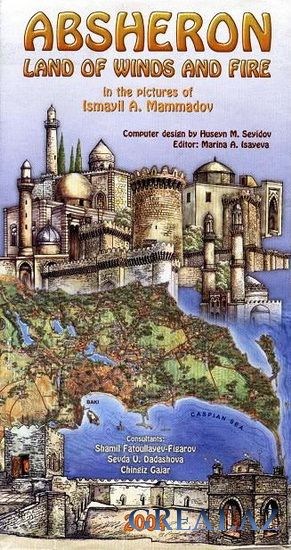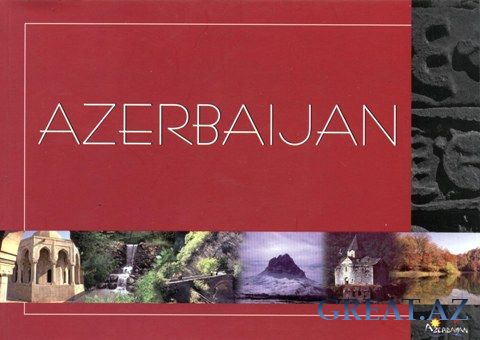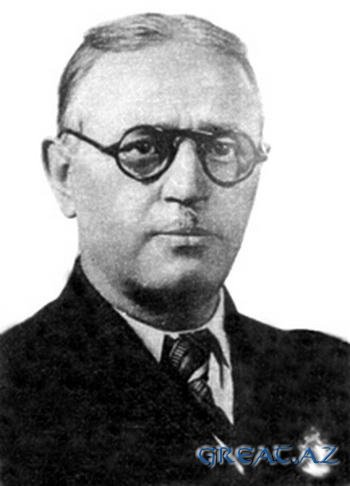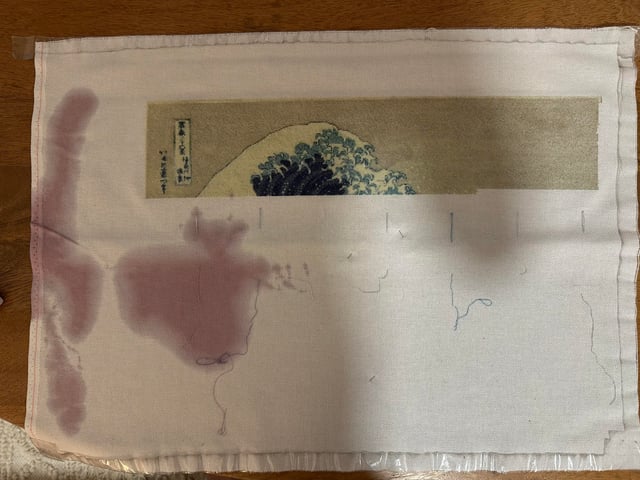Biography
Hajibeyov (Hajibeyli) Uzeyir Abdulhuseyn oglu (1885-1948) is an Azerbaijan conductor, scientist, publicist, playwright, teacher, translator and social figure. He was the creator of the first operas and operettas in the East. He was a people's artist of the USSR (1938), academician of the Academy of Sciences of Azerbaijan (1945), professor (1940), Stalin prize-winner (1941-1946), the chairman of the Composers' union of Azerbaijan (1938-1948), rector of the Azerbaijan State Conservatoire (1928-1929; 1939-1948), director of the Art Institute of A. S. of Azerbaijan (1945-1948).
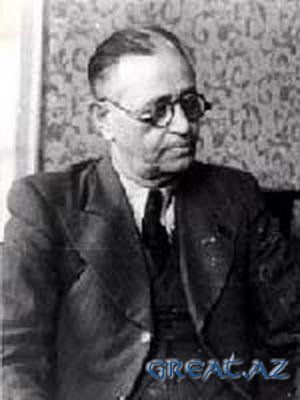
Uzeyir Hajibeyov was born in Karabakh, the land of famous poets and writers, artists, composers and performers. He was born on the 18th of September, 1885, in Azerbaijan district Shusha region in the family of copyist. His childhood and youth were spent in one of the most beautiful nooks of Azerbaijan, in ancient town of Shusha. Uzeyir Hacibeyov`s house in Shusha
Shusha is called the conservatoire of the East, it is the land of talents, the land of musicians. His first education he got in religious school (medrese), where he learned in perfection Arab and Farsi languages. Then he studied in two-year Russian-Azerbaijan school. Here, due to his favorite teacher Mirza Mekhti Hasanzadeh, he got acquainted with the creative activity of the famous writers of the East and the West. The richness of the musical-performance tradition of Shusha influenced greatly the musical education of Uzeyir Hajibeyov. Uzeyir bek wrote: "The first musical education I got in my childhood in Shusha, from the best singers and saz -players. At that time I sang mughams and tesnifs. Singers liked my voice. They made me sing and taught at the same time." The first teacher of Uzeyir Hajibeyov was his uncle Agalar bek Aliverdibeyov, the excellent connoisseur of Azerbaijan people's music. And the first literary debut of Uzeyir Hajibeyov was in Shusha, when he was 13 he wrote a book of fairy-tales and short stories. It is called "Kitabi-mezheke" ("A book of jokes"), and he illustrated his book himself. "Kitabi-mezheke" was read by his friends. When Uzeyir Hajibeyov was13, in 1897-1898 in Shusha the scene "Medjnun on Leyla's grave" was staged under the leadership of A. Akhverdiyev and D. Karyagdy oglu in the performance of actors-amateurs. Uzeyir sang in the choir.
From 1899 to 1904 he got his education in Gori's teachers; school. There, along with general education, they also got musical one. In this school Uzeyir learned to play three musical instruments: the violin, the violoncello, the brass instrument - the bariton. Agali Gasimov, the famous teacher, the friend of Uzeyir school, wrote, recollecting those years: "Till now I remember one case: I was playing the violin, Peker (the music teacher) corrected my mistakes. He got heroes and shouted. However all Peker's efforts were in vain at last Peker lost his patience, turned to Uzeyir Hajibeyov, who was standing near him and said "You have been playing for three years and again not right. Hajibeyov has been learning for one year and in spite of this, plays three musical instruments". And this is natural because Uzeyir Hajibeyov had unusual talent and diligence. He also regularly sang in the choir and played in the school orchestra. This school played a great part in the formation of his world outlook. In this school Uzeyir bek got to know the world culture, learned works of West-European and Russian musical classics, set folk music to notes.
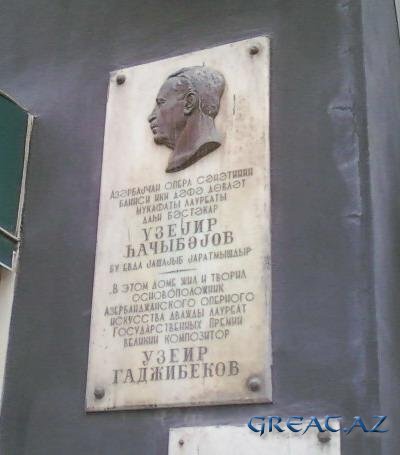
Uzeyir Hacibeyov in Bibi-Heybet school Finished successfully in 1904 Gori teacher school, Uzeyir Hajibeyov was taken up as a teacher in the village of Gadrut of Djebrail district. Having worked there for a year, in 1905 Uzeyir bey went to Baku. At first he was a teacher in Bibi-Eybat district, and from 1908 to 1911 he taught at scool "Saadat". At those schools he taught native language, Mathematics, Geography, History, Russian
language, music. In Baku, in the printeng- house of Orujevs brothers U. Hajibeyov published his text-books "Turkish-Russian and Russian-Turkish dictionary of political, juridical, economic and military terms, used in press" (1907), "Arithmetics problems" (1908) in Azerbaijan.
The thought about composition of the text-books came into head of Uzeyir bey, when he studied at Gori teachers' school. In newspaper "Taraggi" ("Progress") (30th January, 1909) Uzeyir bey wrote "I was in the second form of the school and in a year I was to be a teacher. At the written examination I was to write the article on the topic: "What job I'll do in future". I wrote that as there were no text-books in native language in our school, I would compose these text-books". His literary career Uzeyir Hajibeyov began with publicist writing. Under 64 pen-names "Felankes" ("That kind"), "Bir kes" ("Some"), "U", "Uzeyir", "Besavad" ("Illiteracy"), "Avara"("Loafer"), "Chi" and others, he wrote articles, connected with social-political life of the society, raised the questions of education and culture, wrote satirical articles and satirical miniatures. His articles were published in newspapers "Shargi-Rus" ("East-Russia"), "Ittihad" ("Association"), "Hayat" ("Life"), "Irshad" ("Road of Truth"), "Taraggi" ("Progress"), "Hagigat" ("Truth"), "Igbal" ("Fate"), "Yeni Igbal" ("New Fate"), "Caspei" in magazine "Molla Nasreddin", under the heading "Ordan-burdan" ("From there - from here"), "Oyan bu yan" ("That side, this side"), "Daradan tapadan" ("Ravine-Top").
It must be noted that our scientists found more than 2 thousand articles, written by Hajibeyov. He translated into Azerbaijan Gogol's novel "Overcoat". Though Uzeyir Hajibeyov began his career as a journalist; the world fame came to him with his musical works. With his beautiful works he wide opened the window into the world. By right Uzeyir Hajibeyov is considered to be the father of the music of the East. So, on the 12th (25) January , 1908, in Baku at Hadji Zeynalabdin Tagiyev theatre the first night of the opera "Leyli and Mejnun" took place. It was the first opera in Azerbaijan, which put the beginning to the opera art in the whole East. The libretto of the opera Uzeyir bek wrote on the basis of the poem under the same title by famous poet of the XVI century Mohammed Fizuli. From 1909 to 1915 one after another the national operas were created "Sheikh Sanan" (1909), "Rustam and Sohrab" (1910), "Shah Abbas and Hurshid Banu" (1912), "Asli and Kerem" (1912), "Garun and Leyla" (1915). Libretto of these operas U. Hajibeyov wrote on the basis of people's dastans and legends and also on the basis of Fizuli poem "Shah-name`". The activity of Uzeyir Hajibeyov in the field of dramatic art is of great importance for Azerbaijan literature. He alsowas the creator of operetta genre in the whole East. Both music and libretto to his operettas "The husband and the wife" (1909), "Not that, let it be this" (1910), "Arshin mal alan" (1913) Uzeyir bek wrote himself. The great composer Uzeyir bek created the unique school with his three works, especially with operetta "Arshin mal alan". To get a higher education Uzeyir Hajibeyov in 1912 first went to (St. I) Moskow. There on the musical courses of the philarmonic society he took lessons of singing from N. M. Sadukhin, of harmony from N. M. Sokolovsky. And in 1913 he studied in St. Petersburg's conservatoire. In the conservatoire his harmony teacher was the pupil of N. A. Rimsky-Korsakov V. P. Kalafati and his organ teachers were famous V. V. Shcherbakov and Yu. Yu. Gandshin. The St. Petersburg's period played the great part in the life and creative activity of Uzeyir bek. It was namely here that his operetta "Arshin mal alan" was composed. Because of the World War the first U. Hajibeyov didn't finish his studies and in 1914 returned to Baku.
Opera and operetta company of Hacibeyov`s brothers. Baku (1918-1919)
The year of 1918 began tragically for Azerbaijan people. During the period of bloody events (the Armenian genocide against the Azerbaijan People) public and state figure N. Narimanov who was the leader of Azerbaijan at that time, asked U. Hajibeyov to come to him and advised him to go on tour to Iran together with the "Theatre company of Hajibeyovs brothers". Uzeyir bey refused,
he expressed the wish to remain with his people. However N. Narimanov made Hajibeyov go on tour, saying that "we must take care of you". Having gone on tour with the theatre in March 1918, Uzeyir bek returned to Baku on the 23 October, 1918 and on the 29 October, 1918 his first article was published in the newspaper "Azerbaijan".
During the rule of Azerbaijan Democratic Republic (1918-1920) Uzeyir Hajibeyov co-operated in the newspaper "Azerbaijan" Daily, and sometimes, every other day his articles appeared in the newspaper. The first editor-in-chief of the newspaper was the younger brother of Uzeyir bey Djeyun bey Hajibeyli. From January 1919 to the 27 April, 1920 Uzeyir Hajibeyov was the director of the newspaper "Azerbaijan". He published many articles in this newspaper and gained respect as a far-seeing politician, high-minded publicist, and fearless journalist. Uzeyir Hacibeyov
The 20-s came into history of musical development of Azerbaijan as the years of organization and at the head of this time stood Uzeyir Hajibeyov. He deferred the program of the further development of Azerbaijan music. He thought about the training of the professional musical personnel.
The first musical school (Azerbaijan State Turkish musical school) was created in Baku in 1921, then this school was reorganized into a musical secondary school (its first director was U. Hajibeyov). In 1926 this school merged with Azerbaijan State Conservatoire. Since 1926
Hajibeyov worked in Azerbaijan State Conservatoire. There, in the Conservatoire he created the Azerbaijan coir. However this choir broke down and in 1936 by initiative of Uzeyir bey at Azerbaijan State Philharmonic the State choir was created again. Till the end of his life, from time to time Uzeyir Hajibeyov led the Azerbaijan State Conservatoire (1928-1929, 1939-1948).
In 1927 U. Hajibeyov together with M. Magomayev published the first anthology "Azerbaijan Folk Songs". In 1931 he for the first time created at Radio Committee of Azerbaijan the music orchestra of folk instruments. Along with works by M. Glinka, V. Mozart, F. Shubert, G. Bize the phantasies composed by Uzeyir bey for this orchestra in 1931, 1932 were included into the repertoire. At first U. Hajibeyov conducted himself this orchestra. He also composed the works in genre of chamber-instrumental music, songs, marches, cantatas, romances and ballets.
In 1938 he created Azerbaijan State Symphony Orchestra. The top of creative activity of U. Hajibeyov is his opera "Ker-oglu", which was staged for the first time on the stage of the Azerbaijan State Theatre of Opera and Ballet on the 30 April 1937. This work brought to the composer, great artist unsurpassed success and fame. Libretto was written by G. Ismailov and M. S. Ordubadi. Using the European opera art U. Hajibeyov composed to this libretto wonderful eastern opera on the eastern bases. Here he with large skill united the West-European musical instruments with the Eastern musical instruments, keeping to the forms of classical operas, composed the whole arias, the scene of mass choir, ensembles, ballet, pieces, recitatives. "Ker-oglu" was both a national hero and an ashug. That's why the opera was in its main part composed in the stile of ashug's music.
Opera "Ker-oglu" was performed in Moscow in 1938, during the successfully passing decade of Azerbaijan art, and was acknowledge the best opera. The Opera was awarded Stalin prize (1941). During the World War the second (1941-1945) U. Hajibeyov wrote a number of works, which inspired our army, our people to victory. These were works "Call", "Happy Way!", "Mother's Parting words to her son", "The sister of Mercy", "The March of soldiers" and other songs; the piece "Djangi"(1941), cantata "The Motherland and the Front" (1942). Among the works created during these years the special place took his romances "Sansiz" ("Without you")(1942) and "Sevgili Djanan" ("Beloved")(1943), dedicated to the 800th anniversary from the date of birth of Nizami Gyandjevi (romances are composed on the word of Nizami is gazells). During the last years of his life U. Hajibeyov worked at opera "Firuza". Only Firuza's aria remained incompleted.
Uzeyir bey is also the author of the National Anthems of Azerbaijan (1945, 1995). In his works U. Hajibeyov creatd the unity of the Eastern and the Western systems, in this way taking away the bars between the cultures of the East and West which considered to be to be insurmountable. He defined the principles of the development of Eastern music. In all musical genres he could create the style of Uzeyir.
The great part belongs to him in new achievements of Azerbaijan music, it's rising on the international level. U. Hajibeyov was at the same time a musical scholar, he laid the foundation of musical scholarship in Azerbaijan. In this field he created the major work "The basis of the Azerbaijan Folk Music", wrote many articles. At his scientific research work "The basis of Azerbaijan Folk Music" Uzeyir bek worked for 20 years (1925-1945).
In this work the author gave deep analysis of the national music - these are mughams, folk-songs, and also revealed the law-governed nature of Azerbaijan modes, in general, National music. This work, related to the basis of the Azerbaijan folk music, is nowadays a handbook of all the composers, theorists, musical scholars. This is the basis for the further development of the Azerbaijan music. In the letter, sent from Moscow in August, 1945, from well-known Russian composer R. M. Glier to Uzeir bek: "Dear Uzeyir bek! I've received your book "The basis of Azerbaijan Folk music". Great thanks! I believe, that your work will be of great importance for the development of Azerbaijan musical art, and thus for the development of the musical art of Soviets and the world. I congratulate you and the young composers of Azerbaijan on this splendid book, which has come out. Sincerely yours, Glier." The well-known scientist, academician Hudu Mamedov spoke of this work: "The basis of the Azerbaijan Folk music" - is an ocean. It's a valuable major work and is not only the basis of the Azerbaijan folk music, but at the same time it is also the basis of all sciences." This work is issued in Azerbaijan, Russian and English languages.
U. Hajibeyov brought up the whole generation of talented composers, musical scholars. Uzeyir bek's students were
G. Garayev, F. Amirov, Niyazi, S. Gadjibeyov and others.
National and international music of Uzeyir Hajibeyov won
the international fame and has come into the golden fund of world's musical culture. Uzeyir Hacibeyov and Kara Karayev
It's enough to note, that Hajibeyov's operetta "Arshin mal alan" was translated into English, French, German, Chinese, Arab, Farsi, Polish, Russian, Ukrainian, Byelorussian, Georgian and others, in general into 67 languages of the world. It was staged in more than 100 cities, including 13 stages of the USA, 16 cities of Poland, 3 cities of China, in Turkey, Iran, Greece, Paris, London, Berlin, Sofia, Moscow and others. The operetta was screened 4 times. And operetta "Not that, let it be this" was staged in Turkmen, Turkey, Iran, Yemen, Bulgaria and so on. Operetta "Ker-oglu", which is considered to be the top of the creative activity of Uzeyir bek, was staged in Ashkhabad (1939, in Turkmenian language), in Tashkent (1950, in Uzbek language). The works of Uzeyir Hajibekov have lived not one screen life. Operetta "Arshin mal alan" was screened in Baku in 1917 (director B. Svetlov), in 1945 (directors Tahmasib, N. Leshchenko) and in the 30-s in the USA. For the film, shot in 1945, U. Hajibeyov and the creative group was awarded Stalin prize. In 1956 operetta "Not that, let it be this" was screened (director G. Seidzadeh).
All his life U. Hajibeyov worked tirelessly as a scholar figure too. Since the first calling (the first calling in 1937, the second in 1946) till the end of the life he was a deputy of the Supreme Soviet of the USSR. In 1938 he was a member of jury at the first All-union competition of conductors in Moscow and since October 1939 - the chairman of the jury at the all-union folk instruments Uzeyir Hajibeyov (the chairman) in jury stuff of the All-Union contest of performers on the folk instruments. Moscow (1939)
performers review of the peoples of the USSR. In 1945 in Baku the Academy of Sciences of Azerbaijan was created. Since the same year Uzeyir bey was elected a member of Academy. In 1945 U. Hajibeyov created at the Academy the Art Institute, and became its rector. According to decision of the Azerbaijan government in 1945 to the Art Institute in 1944 to the Azerbaijan State Symphony Orchestra was given the name of Uzeyir Hajibeyov. He was conferred several orders and medals.
Funeral of Uzeyir Hajibeyov. Baku (1948) In 1945 the 60th anniversary of U. Hajibeyov was celebrated solemnly on the state 29 November, 1948 - this date is the date of sorrow in the history of our people. On that day great composer, the beloved son of the people, Uzeyir Hajibeyov died. But Uzeyir bey is immortal. His immortal works live nowadays, and this means that while there is life on the earth, the name of Uzeyir Hajibeyov will shine.
Today more than 40 objects are named after Uzeyir Hajibeyov: Azerbaijan State Conservatoire (1949), and Azerbaijan State Symphony Orchestra (1944) and also music schools, music secondary schools, schools of general education, streets, parks of culture and rest, clubs, state farms, a ship and others. In 1965 in Azerbaijan the State prize named after Uzeyir Hajibeyov was founded. Houses-museums of Uzeyir Hajibeyov were opened in Shusha (1959), Baku (1975). The monuments were erected in Baku (1960, from bronze and granite,sculptor Tokai Mamedov), in Shusha (1985, from bronze and granite, sculptor Akhmet Tsalikov). The monument in the Alley of honoured graves was put up in 1959 (from bronze and granite, sculptor Omar Eldarov). In 1949 composer Fikret Amirov composed poem "The dedication to Uzeyir Hajibeyov" for violin, violoncello and 2 pianos. At the studio "Azerbaijanfilm" 2-part television feature film "Accords of long life" ("The life of Uzeyir") was shot. The film was shot in 1982: the scriptwriter and the producer was Anar. In 1983-1985 the academician edition of musical works in 3 volumes by Uzeyir Hajibeyov (the score of 1-3 acts of opera "Ker-oglu") was published. The 80th, 100th, 110th, anniversary memorial gatherings were organized. According to the decision of UNESCO the 100th anniversary of Uzeyir Hajibeyov was celebrated on the international scale.
Hajibeyov (Hajibeyli) Uzeyir Abdulhuseyn oglu (1885-1948) is an Azerbaijan conductor, scientist, publicist, playwright, teacher, translator and social figure. He was the creator of the first operas and operettas in the East. He was a people's artist of the USSR (1938), academician of the Academy of Sciences of Azerbaijan (1945), professor (1940), Stalin prize-winner (1941-1946), the chairman of the Composers' union of Azerbaijan (1938-1948), rector of the Azerbaijan State Conservatoire (1928-1929; 1939-1948), director of the Art Institute of A. S. of Azerbaijan (1945-1948).

Uzeyir Hajibeyov was born in Karabakh, the land of famous poets and writers, artists, composers and performers. He was born on the 18th of September, 1885, in Azerbaijan district Shusha region in the family of copyist. His childhood and youth were spent in one of the most beautiful nooks of Azerbaijan, in ancient town of Shusha. Uzeyir Hacibeyov`s house in Shusha
Shusha is called the conservatoire of the East, it is the land of talents, the land of musicians. His first education he got in religious school (medrese), where he learned in perfection Arab and Farsi languages. Then he studied in two-year Russian-Azerbaijan school. Here, due to his favorite teacher Mirza Mekhti Hasanzadeh, he got acquainted with the creative activity of the famous writers of the East and the West. The richness of the musical-performance tradition of Shusha influenced greatly the musical education of Uzeyir Hajibeyov. Uzeyir bek wrote: "The first musical education I got in my childhood in Shusha, from the best singers and saz -players. At that time I sang mughams and tesnifs. Singers liked my voice. They made me sing and taught at the same time." The first teacher of Uzeyir Hajibeyov was his uncle Agalar bek Aliverdibeyov, the excellent connoisseur of Azerbaijan people's music. And the first literary debut of Uzeyir Hajibeyov was in Shusha, when he was 13 he wrote a book of fairy-tales and short stories. It is called "Kitabi-mezheke" ("A book of jokes"), and he illustrated his book himself. "Kitabi-mezheke" was read by his friends. When Uzeyir Hajibeyov was13, in 1897-1898 in Shusha the scene "Medjnun on Leyla's grave" was staged under the leadership of A. Akhverdiyev and D. Karyagdy oglu in the performance of actors-amateurs. Uzeyir sang in the choir.
From 1899 to 1904 he got his education in Gori's teachers; school. There, along with general education, they also got musical one. In this school Uzeyir learned to play three musical instruments: the violin, the violoncello, the brass instrument - the bariton. Agali Gasimov, the famous teacher, the friend of Uzeyir school, wrote, recollecting those years: "Till now I remember one case: I was playing the violin, Peker (the music teacher) corrected my mistakes. He got heroes and shouted. However all Peker's efforts were in vain at last Peker lost his patience, turned to Uzeyir Hajibeyov, who was standing near him and said "You have been playing for three years and again not right. Hajibeyov has been learning for one year and in spite of this, plays three musical instruments". And this is natural because Uzeyir Hajibeyov had unusual talent and diligence. He also regularly sang in the choir and played in the school orchestra. This school played a great part in the formation of his world outlook. In this school Uzeyir bek got to know the world culture, learned works of West-European and Russian musical classics, set folk music to notes.

Uzeyir Hacibeyov in Bibi-Heybet school Finished successfully in 1904 Gori teacher school, Uzeyir Hajibeyov was taken up as a teacher in the village of Gadrut of Djebrail district. Having worked there for a year, in 1905 Uzeyir bey went to Baku. At first he was a teacher in Bibi-Eybat district, and from 1908 to 1911 he taught at scool "Saadat". At those schools he taught native language, Mathematics, Geography, History, Russian
language, music. In Baku, in the printeng- house of Orujevs brothers U. Hajibeyov published his text-books "Turkish-Russian and Russian-Turkish dictionary of political, juridical, economic and military terms, used in press" (1907), "Arithmetics problems" (1908) in Azerbaijan.
The thought about composition of the text-books came into head of Uzeyir bey, when he studied at Gori teachers' school. In newspaper "Taraggi" ("Progress") (30th January, 1909) Uzeyir bey wrote "I was in the second form of the school and in a year I was to be a teacher. At the written examination I was to write the article on the topic: "What job I'll do in future". I wrote that as there were no text-books in native language in our school, I would compose these text-books". His literary career Uzeyir Hajibeyov began with publicist writing. Under 64 pen-names "Felankes" ("That kind"), "Bir kes" ("Some"), "U", "Uzeyir", "Besavad" ("Illiteracy"), "Avara"("Loafer"), "Chi" and others, he wrote articles, connected with social-political life of the society, raised the questions of education and culture, wrote satirical articles and satirical miniatures. His articles were published in newspapers "Shargi-Rus" ("East-Russia"), "Ittihad" ("Association"), "Hayat" ("Life"), "Irshad" ("Road of Truth"), "Taraggi" ("Progress"), "Hagigat" ("Truth"), "Igbal" ("Fate"), "Yeni Igbal" ("New Fate"), "Caspei" in magazine "Molla Nasreddin", under the heading "Ordan-burdan" ("From there - from here"), "Oyan bu yan" ("That side, this side"), "Daradan tapadan" ("Ravine-Top").
It must be noted that our scientists found more than 2 thousand articles, written by Hajibeyov. He translated into Azerbaijan Gogol's novel "Overcoat". Though Uzeyir Hajibeyov began his career as a journalist; the world fame came to him with his musical works. With his beautiful works he wide opened the window into the world. By right Uzeyir Hajibeyov is considered to be the father of the music of the East. So, on the 12th (25) January , 1908, in Baku at Hadji Zeynalabdin Tagiyev theatre the first night of the opera "Leyli and Mejnun" took place. It was the first opera in Azerbaijan, which put the beginning to the opera art in the whole East. The libretto of the opera Uzeyir bek wrote on the basis of the poem under the same title by famous poet of the XVI century Mohammed Fizuli. From 1909 to 1915 one after another the national operas were created "Sheikh Sanan" (1909), "Rustam and Sohrab" (1910), "Shah Abbas and Hurshid Banu" (1912), "Asli and Kerem" (1912), "Garun and Leyla" (1915). Libretto of these operas U. Hajibeyov wrote on the basis of people's dastans and legends and also on the basis of Fizuli poem "Shah-name`". The activity of Uzeyir Hajibeyov in the field of dramatic art is of great importance for Azerbaijan literature. He alsowas the creator of operetta genre in the whole East. Both music and libretto to his operettas "The husband and the wife" (1909), "Not that, let it be this" (1910), "Arshin mal alan" (1913) Uzeyir bek wrote himself. The great composer Uzeyir bek created the unique school with his three works, especially with operetta "Arshin mal alan". To get a higher education Uzeyir Hajibeyov in 1912 first went to (St. I) Moskow. There on the musical courses of the philarmonic society he took lessons of singing from N. M. Sadukhin, of harmony from N. M. Sokolovsky. And in 1913 he studied in St. Petersburg's conservatoire. In the conservatoire his harmony teacher was the pupil of N. A. Rimsky-Korsakov V. P. Kalafati and his organ teachers were famous V. V. Shcherbakov and Yu. Yu. Gandshin. The St. Petersburg's period played the great part in the life and creative activity of Uzeyir bek. It was namely here that his operetta "Arshin mal alan" was composed. Because of the World War the first U. Hajibeyov didn't finish his studies and in 1914 returned to Baku.
Opera and operetta company of Hacibeyov`s brothers. Baku (1918-1919)
The year of 1918 began tragically for Azerbaijan people. During the period of bloody events (the Armenian genocide against the Azerbaijan People) public and state figure N. Narimanov who was the leader of Azerbaijan at that time, asked U. Hajibeyov to come to him and advised him to go on tour to Iran together with the "Theatre company of Hajibeyovs brothers". Uzeyir bey refused,
he expressed the wish to remain with his people. However N. Narimanov made Hajibeyov go on tour, saying that "we must take care of you". Having gone on tour with the theatre in March 1918, Uzeyir bek returned to Baku on the 23 October, 1918 and on the 29 October, 1918 his first article was published in the newspaper "Azerbaijan".
During the rule of Azerbaijan Democratic Republic (1918-1920) Uzeyir Hajibeyov co-operated in the newspaper "Azerbaijan" Daily, and sometimes, every other day his articles appeared in the newspaper. The first editor-in-chief of the newspaper was the younger brother of Uzeyir bey Djeyun bey Hajibeyli. From January 1919 to the 27 April, 1920 Uzeyir Hajibeyov was the director of the newspaper "Azerbaijan". He published many articles in this newspaper and gained respect as a far-seeing politician, high-minded publicist, and fearless journalist. Uzeyir Hacibeyov
The 20-s came into history of musical development of Azerbaijan as the years of organization and at the head of this time stood Uzeyir Hajibeyov. He deferred the program of the further development of Azerbaijan music. He thought about the training of the professional musical personnel.
The first musical school (Azerbaijan State Turkish musical school) was created in Baku in 1921, then this school was reorganized into a musical secondary school (its first director was U. Hajibeyov). In 1926 this school merged with Azerbaijan State Conservatoire. Since 1926
Hajibeyov worked in Azerbaijan State Conservatoire. There, in the Conservatoire he created the Azerbaijan coir. However this choir broke down and in 1936 by initiative of Uzeyir bey at Azerbaijan State Philharmonic the State choir was created again. Till the end of his life, from time to time Uzeyir Hajibeyov led the Azerbaijan State Conservatoire (1928-1929, 1939-1948).
In 1927 U. Hajibeyov together with M. Magomayev published the first anthology "Azerbaijan Folk Songs". In 1931 he for the first time created at Radio Committee of Azerbaijan the music orchestra of folk instruments. Along with works by M. Glinka, V. Mozart, F. Shubert, G. Bize the phantasies composed by Uzeyir bey for this orchestra in 1931, 1932 were included into the repertoire. At first U. Hajibeyov conducted himself this orchestra. He also composed the works in genre of chamber-instrumental music, songs, marches, cantatas, romances and ballets.
In 1938 he created Azerbaijan State Symphony Orchestra. The top of creative activity of U. Hajibeyov is his opera "Ker-oglu", which was staged for the first time on the stage of the Azerbaijan State Theatre of Opera and Ballet on the 30 April 1937. This work brought to the composer, great artist unsurpassed success and fame. Libretto was written by G. Ismailov and M. S. Ordubadi. Using the European opera art U. Hajibeyov composed to this libretto wonderful eastern opera on the eastern bases. Here he with large skill united the West-European musical instruments with the Eastern musical instruments, keeping to the forms of classical operas, composed the whole arias, the scene of mass choir, ensembles, ballet, pieces, recitatives. "Ker-oglu" was both a national hero and an ashug. That's why the opera was in its main part composed in the stile of ashug's music.
Opera "Ker-oglu" was performed in Moscow in 1938, during the successfully passing decade of Azerbaijan art, and was acknowledge the best opera. The Opera was awarded Stalin prize (1941). During the World War the second (1941-1945) U. Hajibeyov wrote a number of works, which inspired our army, our people to victory. These were works "Call", "Happy Way!", "Mother's Parting words to her son", "The sister of Mercy", "The March of soldiers" and other songs; the piece "Djangi"(1941), cantata "The Motherland and the Front" (1942). Among the works created during these years the special place took his romances "Sansiz" ("Without you")(1942) and "Sevgili Djanan" ("Beloved")(1943), dedicated to the 800th anniversary from the date of birth of Nizami Gyandjevi (romances are composed on the word of Nizami is gazells). During the last years of his life U. Hajibeyov worked at opera "Firuza". Only Firuza's aria remained incompleted.
Uzeyir bey is also the author of the National Anthems of Azerbaijan (1945, 1995). In his works U. Hajibeyov creatd the unity of the Eastern and the Western systems, in this way taking away the bars between the cultures of the East and West which considered to be to be insurmountable. He defined the principles of the development of Eastern music. In all musical genres he could create the style of Uzeyir.
The great part belongs to him in new achievements of Azerbaijan music, it's rising on the international level. U. Hajibeyov was at the same time a musical scholar, he laid the foundation of musical scholarship in Azerbaijan. In this field he created the major work "The basis of the Azerbaijan Folk Music", wrote many articles. At his scientific research work "The basis of Azerbaijan Folk Music" Uzeyir bek worked for 20 years (1925-1945).
In this work the author gave deep analysis of the national music - these are mughams, folk-songs, and also revealed the law-governed nature of Azerbaijan modes, in general, National music. This work, related to the basis of the Azerbaijan folk music, is nowadays a handbook of all the composers, theorists, musical scholars. This is the basis for the further development of the Azerbaijan music. In the letter, sent from Moscow in August, 1945, from well-known Russian composer R. M. Glier to Uzeir bek: "Dear Uzeyir bek! I've received your book "The basis of Azerbaijan Folk music". Great thanks! I believe, that your work will be of great importance for the development of Azerbaijan musical art, and thus for the development of the musical art of Soviets and the world. I congratulate you and the young composers of Azerbaijan on this splendid book, which has come out. Sincerely yours, Glier." The well-known scientist, academician Hudu Mamedov spoke of this work: "The basis of the Azerbaijan Folk music" - is an ocean. It's a valuable major work and is not only the basis of the Azerbaijan folk music, but at the same time it is also the basis of all sciences." This work is issued in Azerbaijan, Russian and English languages.
U. Hajibeyov brought up the whole generation of talented composers, musical scholars. Uzeyir bek's students were
G. Garayev, F. Amirov, Niyazi, S. Gadjibeyov and others.
National and international music of Uzeyir Hajibeyov won
the international fame and has come into the golden fund of world's musical culture. Uzeyir Hacibeyov and Kara Karayev
It's enough to note, that Hajibeyov's operetta "Arshin mal alan" was translated into English, French, German, Chinese, Arab, Farsi, Polish, Russian, Ukrainian, Byelorussian, Georgian and others, in general into 67 languages of the world. It was staged in more than 100 cities, including 13 stages of the USA, 16 cities of Poland, 3 cities of China, in Turkey, Iran, Greece, Paris, London, Berlin, Sofia, Moscow and others. The operetta was screened 4 times. And operetta "Not that, let it be this" was staged in Turkmen, Turkey, Iran, Yemen, Bulgaria and so on. Operetta "Ker-oglu", which is considered to be the top of the creative activity of Uzeyir bek, was staged in Ashkhabad (1939, in Turkmenian language), in Tashkent (1950, in Uzbek language). The works of Uzeyir Hajibekov have lived not one screen life. Operetta "Arshin mal alan" was screened in Baku in 1917 (director B. Svetlov), in 1945 (directors Tahmasib, N. Leshchenko) and in the 30-s in the USA. For the film, shot in 1945, U. Hajibeyov and the creative group was awarded Stalin prize. In 1956 operetta "Not that, let it be this" was screened (director G. Seidzadeh).
All his life U. Hajibeyov worked tirelessly as a scholar figure too. Since the first calling (the first calling in 1937, the second in 1946) till the end of the life he was a deputy of the Supreme Soviet of the USSR. In 1938 he was a member of jury at the first All-union competition of conductors in Moscow and since October 1939 - the chairman of the jury at the all-union folk instruments Uzeyir Hajibeyov (the chairman) in jury stuff of the All-Union contest of performers on the folk instruments. Moscow (1939)
performers review of the peoples of the USSR. In 1945 in Baku the Academy of Sciences of Azerbaijan was created. Since the same year Uzeyir bey was elected a member of Academy. In 1945 U. Hajibeyov created at the Academy the Art Institute, and became its rector. According to decision of the Azerbaijan government in 1945 to the Art Institute in 1944 to the Azerbaijan State Symphony Orchestra was given the name of Uzeyir Hajibeyov. He was conferred several orders and medals.
Funeral of Uzeyir Hajibeyov. Baku (1948) In 1945 the 60th anniversary of U. Hajibeyov was celebrated solemnly on the state 29 November, 1948 - this date is the date of sorrow in the history of our people. On that day great composer, the beloved son of the people, Uzeyir Hajibeyov died. But Uzeyir bey is immortal. His immortal works live nowadays, and this means that while there is life on the earth, the name of Uzeyir Hajibeyov will shine.
Today more than 40 objects are named after Uzeyir Hajibeyov: Azerbaijan State Conservatoire (1949), and Azerbaijan State Symphony Orchestra (1944) and also music schools, music secondary schools, schools of general education, streets, parks of culture and rest, clubs, state farms, a ship and others. In 1965 in Azerbaijan the State prize named after Uzeyir Hajibeyov was founded. Houses-museums of Uzeyir Hajibeyov were opened in Shusha (1959), Baku (1975). The monuments were erected in Baku (1960, from bronze and granite,sculptor Tokai Mamedov), in Shusha (1985, from bronze and granite, sculptor Akhmet Tsalikov). The monument in the Alley of honoured graves was put up in 1959 (from bronze and granite, sculptor Omar Eldarov). In 1949 composer Fikret Amirov composed poem "The dedication to Uzeyir Hajibeyov" for violin, violoncello and 2 pianos. At the studio "Azerbaijanfilm" 2-part television feature film "Accords of long life" ("The life of Uzeyir") was shot. The film was shot in 1982: the scriptwriter and the producer was Anar. In 1983-1985 the academician edition of musical works in 3 volumes by Uzeyir Hajibeyov (the score of 1-3 acts of opera "Ker-oglu") was published. The 80th, 100th, 110th, anniversary memorial gatherings were organized. According to the decision of UNESCO the 100th anniversary of Uzeyir Hajibeyov was celebrated on the international scale.
